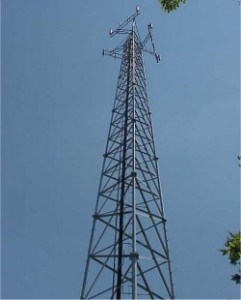
Another reason to keep your landline. During major events, cell phone networks are quickly overwhelmed while wired phone lines still work.
The Associated Press is reporting minutes ago that a law enforcement official has ordered all cellphone service in the Boston area temporarily suspended to prevent any possibility of remote detonations of any other improvised explosive devices. But we have our doubts and in fact was able to reach one of our Boston readers by cell phone in downtown Boston just a moment ago.
“I can’t make calls on Verizon without getting a fast busy signal, but I am getting calls regularly at the moment,” reports Jim, one of our regular readers. “The cell networks are totally jammed with everyone on the phone in this city.”
Jim says a number of his co-workers had no idea there were two explosions at the finish line of the Boston Marathon this afternoon, but word-of-mouth office gossip spread the news over the last hour or so.
“Landlines are working fine, which is another reason you cannot and should not rely on cell phones alone during a major news event or disaster, because they are highly vulnerable to capacity crushes,” Jim said. “Our Internet access at work has also slowed to an absolute crawl and you cannot access a lot of local news websites, so we’ve watched the coverage on over the air television.”
Numerous press reports speculate the two explosions that killed two and injured at least two dozen were the result of some type of explosive device, but law enforcement officials have refused to confirm those reports so far.
As of 5:15pm EDT, Sprint and Verizon Wireless reported they were attempting to maintain service as best as possible despite the flood of wireless calls, and no carrier has confirmed they have been asked to switch off service.
“We are experiencing call blocking due to what’s happening,” Mark Elliott, a Sprint spokesman told the Boston Globe. “The network is blocking calls because the number of calls coming in exceeds the capacity. There’s no way the network can handle that kind of traffic.”
Elliott is asking cell phone users to text messages to friends and loved ones and avoid voice calling until capacity improves. This can keep lines open and clear for emergency and law enforcement officials.
Verizon Wireless, meanwhile, issued a statement, saying: “Verizon Wireless has been enhancing network voice capacity to enable additional calling in the Copley Square area of Boston. Customers are advised to use text or email to free up voice capacity for public safety officials at the scene. There was no damage to the Verizon Wireless network, which is seeing elevated calling and data usage throughout the region since the explosions occurred.”
Update 5:54pm EDT: The Associated Press has officially retracted their earlier story. There has been no request to suspend cell phone service, but carriers are impacted by heavy call volumes.


 Subscribe
Subscribe
 Ergen’s vision would include a bundled package of satellite television, broadband wireless Internet and cellular telephone service. Providing suitable wireless broadband Internet in rural areas may be the biggest challenge because of Sprint’s more limited network coverage, but a marketing deal combining satellite television from Dish and Sprint cell phone service would be easier to carry out.
Ergen’s vision would include a bundled package of satellite television, broadband wireless Internet and cellular telephone service. Providing suitable wireless broadband Internet in rural areas may be the biggest challenge because of Sprint’s more limited network coverage, but a marketing deal combining satellite television from Dish and Sprint cell phone service would be easier to carry out. FreedomPop, which offers 500MB of free wireless data service a month via Clearwire’s WiMAX service on a range of devices, has a better offer for tablet owners coming in the second half of this year.
FreedomPop, which offers 500MB of free wireless data service a month via Clearwire’s WiMAX service on a range of devices, has a better offer for tablet owners coming in the second half of this year.




